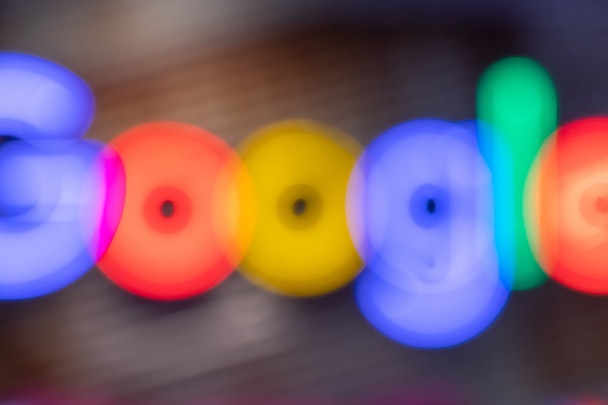The neglected brand accolade: the world’s 10 simplest brands
Margaret Molloy is global chief marketing officer at global branding firm Siegel+Gale, and the host of podcast How CMOs Commit. Here, she digests for us the agency’s World’s Simplest Brands study – and the secrets behind the top 10’s successes in simplicity.

Margaret Molloy of Siegel+Gale on the world's 10 simplest brands / Mitchell Luo via Unsplash
Brands have long competed for a variety of superlatives. Few can count simplicity as an accolade.
Simplicity has always been important, whether brands knew it or not. However, the pandemic has placed a premium on it by fundamentally shifting people’s relationships with brands: as it has made life more complex, people have craved brands that make their life simpler.
This growing demand for simplicity is affirmed in Siegel+Gale’s hallmark World’s Simplest Brands study. Now in its ninth edition, the index ranks the leading brands on simplicity, surveying more than 15,000 people across nine countries about which brands provide the simplest experiences.
The study reveals that the world’s simplest brands are ones that put simplicity at the heart of the customer experience. Simplicity inspires deeper trust, strengthens loyalty, and increases willingness to spend. For instance, the study found that 76% of people are more likely to recommend a brand that delivers simple experiences; and 57% are willing to pay more for simpler experiences.
By failing to provide simple experiences, companies leave an estimated $402 billion on the table. So, simplicity not only reduces stress and improves the lives of consumers; it drives financial gain for the brands that embrace it.
The ninth edition’s global top 10 brands brought simplicity to life in various ways. Simplicity is not a monolith. Their interpretations were particular and contextualized, making sense to their customers, users, and communities. These savvy brands clearly embraced simplicity, treating it not as a byproduct, but as grounds for their success. This proves that simplicity is a means through which to become a top brand, making the moniker ‘world’s simplest brand’ a coveted one.
1. Google
Across numerous platforms, including cloud storage, navigation, and analytics, to name a few—Google adheres to their mission: “to organize the world’s information and make it universally accessible and useful.” And, with their acquisition of Fitbit, Google is only strengthening that purpose. The portfolio addition puts Google one step closer to simplifying the path to improved health and wellness for all.
2. Netflix
In a time of social distancing, Netflix has made it simple for people throughout the world to connect. For instance, you and your far-flung doppelgänger can simultaneously stream—and scream at—Squid Game.
Worldwide access isn’t Netflix’s only diversity effort. The streaming platform is committed to creating and celebrating content that features a variety of communities, pressing play on their mission to “entertain the world”.
3. Lidl
German discount-supermarket chain Lidl is known for its simple offering: high-quality products at low prices. But there’s a new thing in store: plant-based alternatives. To emphasize how plugged in they are to the spirit of sustainability, Lidl has committed to installing 350 electric-vehicle-charging stations at stores across the UK.
4. YouTube
YouTube’s simple, easy-to-navigate interface prevents the inundation of information. And, this year, the video-sharing platform doubled down on this tenet, announcing they would prohibit climate-change-denying advertisements.
5. Aldi
Aldi is known for innovation—regarding prices, products, and personability. The Deutschland discounter has yet another innovation: the “Charcuterie Board of Directors.” The meat-and-cheese mavens share tips and tricks for building the best boards, simplifying both the shopping and savoring experience.
6. McDonald’s
McDonald’s makes simplicity delicious. Take their French fries. The humble potato is sliced, fried, and salted to perfection. Since the onset of the COVID-19 pandemic, McDonald’s has added a new ingredient: goodwill. The company has donated millions of meals to first responders, healthcare workers, and educators. Food and philanthropy make for an excellent combo meal.
7. Samsung
Samsung is renowned for their innovation. Take The Frame. The television transitions effortlessly from displaying content when turned on to works of art when turned off—the simple, picture-frame-like trim accentuating the masterpieces. Given ongoing travel restrictions, many people have been unable to visit museums. The Frame has acted as a personal museum, and Mona Lisa has joined #Quaranteams worldwide.
8. Amazon
Amazon is a revolutionary—from e-commerce to philanthropy and entertainment. Recently, the online marketplace revolutionized another medium: podcasts. Now offering synchronized transcripts of select podcasts for deaf and hard-of-hearing audiences, Amazon simplifies the user experience and advances inclusion and equity ambitions. Yet again, Amazon offers a prime example for delivering curated, hyper-personalized experiences.
9. Uniqlo
In this long period of loungewear, the Japanese retailer Uniqlo has outfitted consumers worldwide. One way the emporium has attracted broad appeal is through their partnerships with such cultural icons as Disney and Sesame Street. In addition to these chic collaborations, Uniqlo’s capsule collection includes quality, longevity, and simplicity.
10. Spotify
With more than three million podcasts and 70 million songs, Spotify occupies airwaves worldwide. Recently, the streaming service introduced Car Thing, a dashboard-mounted, voice-activated device that enables users to simply—and safely—navigate through content. So that means listeners can belt Olivia Rodrigo’s ‘drivers license [sic]’ while keeping theirs.
Complexity is a cognitive tax. The most enlightened CMOs realize that brands need to reduce the cognitive effort required of customers to interact with them and that the brands that do so will be rewarded.
The pandemic has introduced further complexity and made life harder, leading consumers to crave experiences that are easy-to-understand, transparent, and honest; that care for and meet their needs; innovative and fresh; and useful. In short, simple. Now’s the time for all brands and CMOs to re-examine their commitment to simplicity, for simplicity may well be the most prized accolade of all.
Content by The Drum Network member:

Siegel+Gale
Siegel+Gale is a global branding company headquartered in NYC. Our core expertise spans brand development, brand strategy, design, and customer experience.
Find out more
